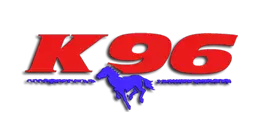
UM’s New Approach to Math Pays Dividends in Student Success
MISSOULA – After Jeff Knopp finished pounding the final nail into the house he built himself near Stevensville, he had an epiphany.
“After I finished, it hit me that I’d never really challenged myself – everything I did up until that point had always been easy,” Knopp said. “I knew it was time for a change.”
A career as a welder that began after high school took Knopp to the Canadian oil fields and back to western Montana. All the while, he dreamed of a career in health care.
The tradesmen with a high school education enrolled at UM and is now about halfway through an integrative physiology and athletic training degree, with sights set on medical school. He loves chemistry and applied calculus.
Knopp’s trajectory may not have been possible largely because of a single class that stumps just about everybody: math.
That’s where the new approach to math being implemented at UM comes in.
“So much about success in math, as in anything, is confidence,” said Lauren Fern, assistant professor of math at UM’s Missoula College and the University’s student success coordinator for math. “The key is to build skills step-by-step at a pace that fits the student’s level of preparation.”
Fern, who consults with university systems around the nation on best practices for remedial math, has led a multiyear effort to revamp UM’s developmental math program. That effort has resulted in changes to the process for placing students in their initial math courses, the development of area-specific math pathways and the implementation of a “corequisite” model to support under-prepared students.
Fern said, historically, most universities required college algebra as the basic math course, because algebra was seen as the gateway into the STEM fields.
Students who were not ready for college algebra were tracked into developmental math courses that did not provide college credit but had to be completed as prerequisites for college algebra. Many students became discouraged, finding themselves in courses that did not seem applicable to their chosen areas and delayed their progress. High drop-out rates were the result.
“We want students to see the applicability and relevance of math to their lives and work,” Fern explained. “They need mathematical concepts that will help deepen their understanding of their chosen field.”
Now students in the social sciences are directed to statistics, while students in the humanities receive a focus on financial and quantitative literacy. Students in STEM fields follow the more traditional path through college algebra.
The next step was to restructure the courses themselves to better meet students where they are.
The new model moves away from the reliance on noncredit developmental courses and toward a corequisite model, where students go directly into college-level courses but with additional support.
“In the past, not only were we asking these students to pay for something they didn’t receive credit for, but the remedial courses didn’t come with a whole lot of support,” said Brian French, director of UM’s Office of Student Success. “The corequisite classes allow students to not only to stay in school and progress toward their degree, but they also provide college credit.”
The new model allows students to stay on track with their peers and complete the same college-level courses, but with more frequent meetings to provide support on both prerequisite material and course content.
“We’re putting students into the course with a structured support system so that they can succeed,” said Fern. “The corequisite portion of the course focuses on study skills, problem-solving, and critical thinking, which will benefit them in other courses as well as in daily life.”
The final piece of the puzzle, implemented this spring, was the new placement system, which shifts away from reliance on one high-stakes exam to place students in math courses and instead toward a more holistic model that looks at multiple measures of competence.
“We are reframing placement as a snapshot in time that provides students the opportunity to improve their initial placement level by working through an individualized study-plan based on their initial diagnostic,” Fern said.
Key to the new system is a self-paced program called EdReady, made available to UM students through the generosity of the Dennis and Phyllis Washington Foundation. EdReady is a personalized, free, online platform that helps students master the math skills they need to succeed. Students can work at their own pace in a program that is tailored to their precise needs.
That was key for Carolyn Koefod from St. Ignatius, who said she nearly didn’t graduate from high school because of math.
After a midlife career change, Koefod is now a forensic anthropology major at UM who plans to achieve her medical examiner’s license for future work as a county coroner or funeral home director. In her way of getting there, she said, were math classes. Koefod, who had not taken a math class since high school and suffers with dyslexia when it comes to numbers, was encouraged to refresh her skills through EdReady before enrolling in probability and linear math with a corequisite component.
After completing a module in EdReady to refresh her skills, Koefod felt confident enough to enroll in required math class, probability and linear math, with Fern. Because it had been so long since Koefod enrolled in a math class, she elected the five-days-a-week math corequisite.
“The way Lauren explains things, takes comments and answers questions is amazing,” Koefod said. “She never approaches students with the belief that it’s their fault they don’t understand. Instead, she works harder to explain it.”
For the first time in her life, Koefod earned an “A” on a math test.
“She’s given me the courage to do this,” Koefod said. “There’s something so incredible about being told your smart enough to do something you thought was impossible – especially by someone you deeply respect.”
Koefod is just one example of how the new approach is working.
Instead of high drop-out rates, classes with a corequisite option in both math and writing are showing a 72% pass rate at UM.
In previous years, math has been such a barrier for students, that UM Associate Vice Provost Brian Reed posits that STEM achievements may have been impacted.
“I wonder if we would have had a cure for cancer by now,” Reed said. “Think about all the creative, bright minds and unique perspectives that we’ve kept at bay because of an entry-level math class. Think of how many doctors, scientists and other professionals that we could have had a hand in creating a pathway for them, had we just figured out how to provide better teaching and support in math.”
- by Jenny Lavey, UM News Service -
More From K96 FM







![Luke Combs Puts His Own Spin on Jordan Davis’ No. 1 Hit, ‘Buy Dirt’ [Watch]](http://townsquare.media/site/204/files/2022/04/attachment-LukeCombs-4.jpg?w=980&q=75)

